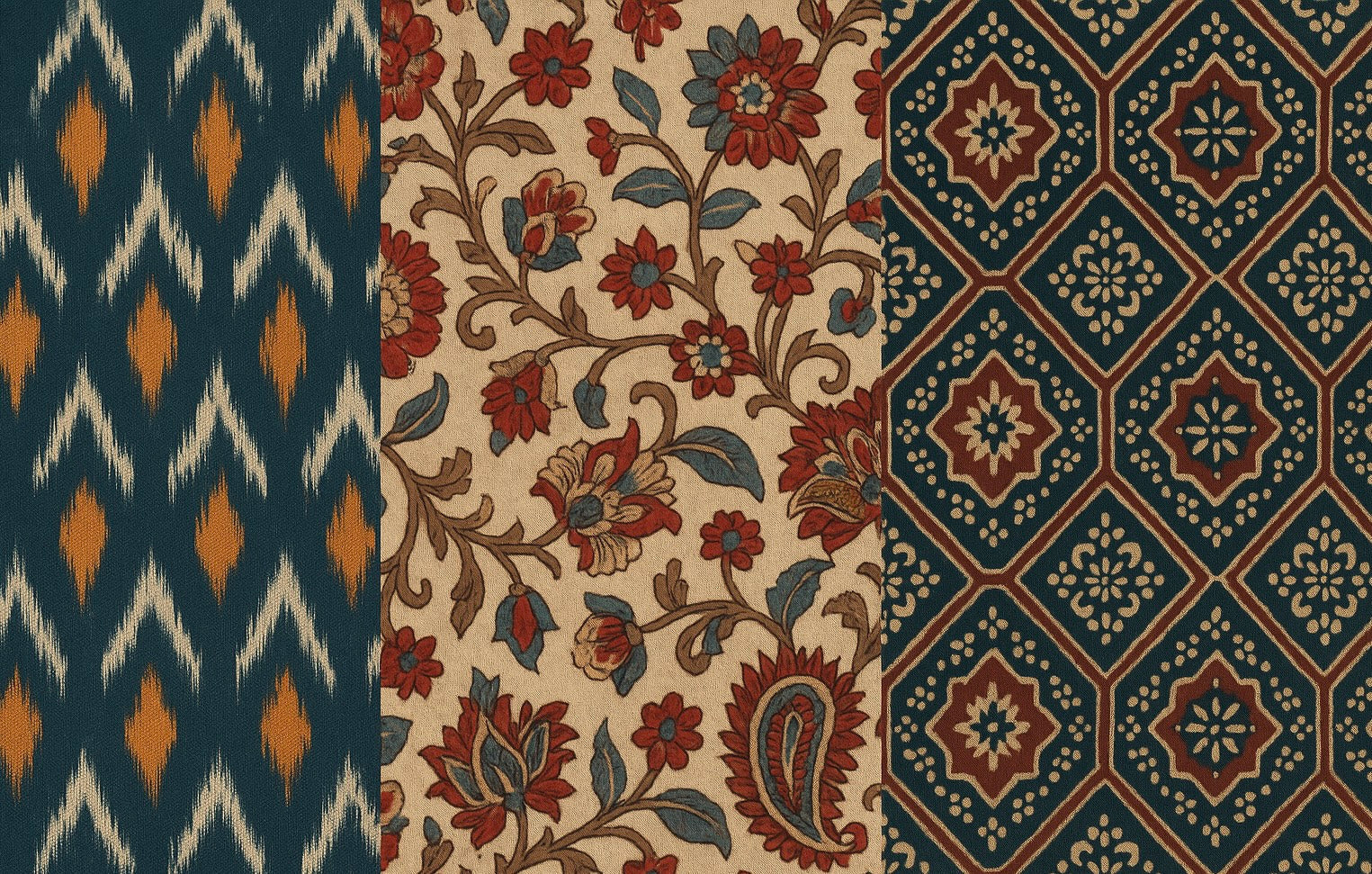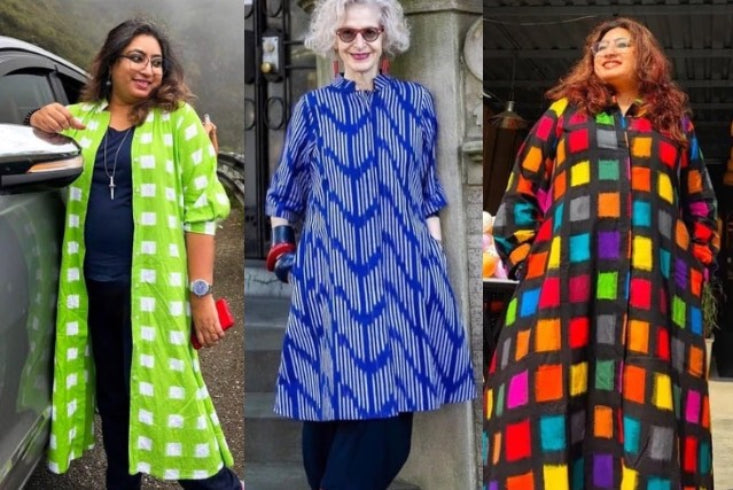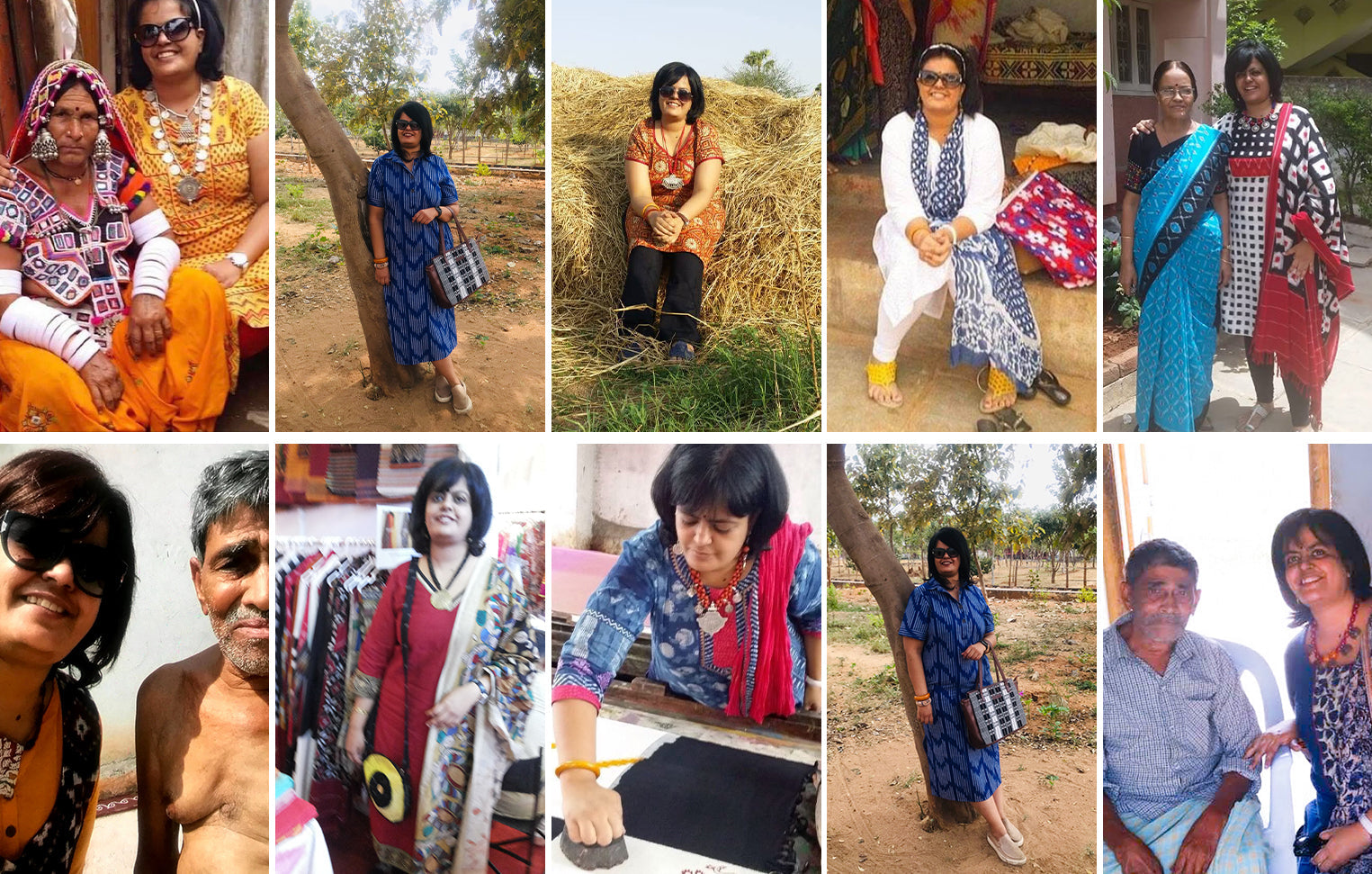
Cultural Appropriation of Textiles – Are we Guilty too ?
Cultural appropriation isn’t just when a big Western brand “borrows” something from us. It’s when a culture’s symbols, designs, or heritage, especially from marginalized communities are taken, stripped of meaning, reproduced, and sold, often by people who don’t belong to that culture and without giving credit or benefit to its originators.
We love to rage when Prada sells our Kolhapuris at an insane price.
But here’s an uncomfortable question—aren’t we guilty too?
1. Our own crafts, reduced to soulless “prints”
Ikat. Kalamkari. Ajrakh. GI-tagged, centuries-old crafts rooted in the skill of specific communities. And yet walk into any high street store and you’ll see “ikat print” on polyester,Kalamkari digitally printed by the thousands. No weaver. No block printer. No story. Just motifs without meaning. We called out Prada, but are we okay when we erase our own heritage?
2. Appropriating other people’s culture—while crying foul when it’s ours
Boho, Tribal, Aesthetic ! Sounds nice, right? But those Navajo and Zapotec tribe inspired fabrics are being mass-produced in North India? They’re sacred designs, deeply tied to the identity of indigenous communities in the US and Mexico. When we rip them from their roots and turn them into furnishings, cushion covers, are we really any different from the brands we accuse of stealing from us?
3. Who is “allowed” to practice a craft?
This one makes us uncomfortable. Privileged women learning traditiobal art forms like Warli, Madhubani, or Lippan art. It’s wonderful to see appreciation for these forms. But here’s the debate: if you don’t belong to the community, don’t follow the traditional process, and don’t give back to the artisans—are you honouring the craft or appropriating it? Can a craft form survive if its custodians are sidelined in favour of more “marketable” versions by outsiders ? Are we stealing the identity of the original artists ?
We need to stop pretending cultural appropriation only happens “out there.”
It’s here. It’s us.
The question is - are we ready to call it out, even when it’s in our own mirror !






